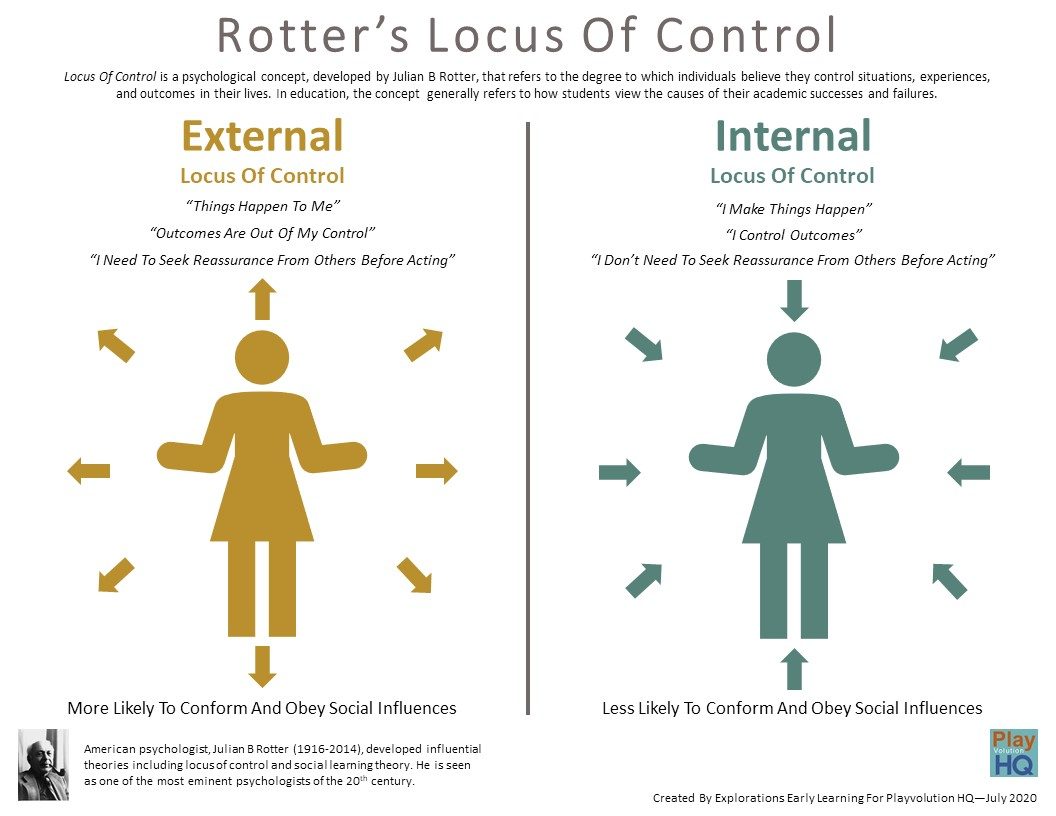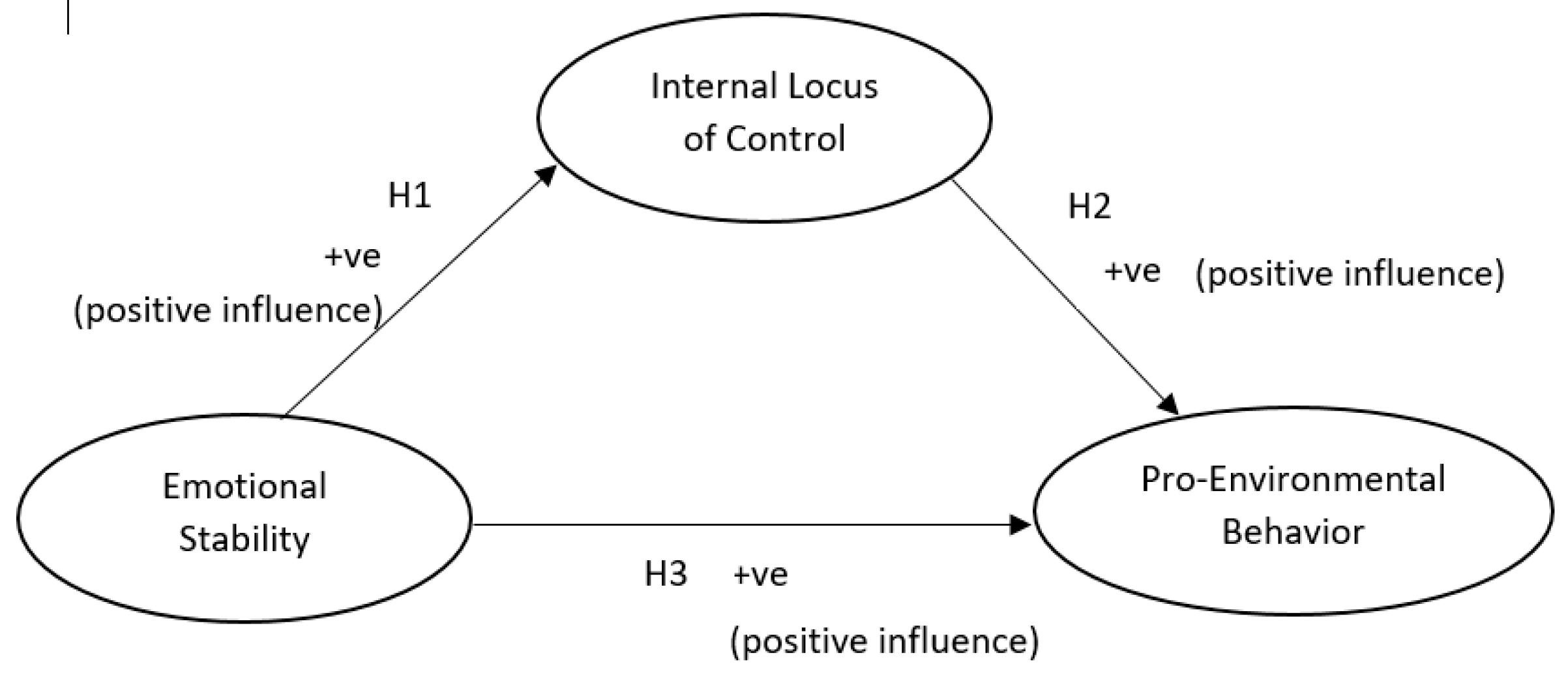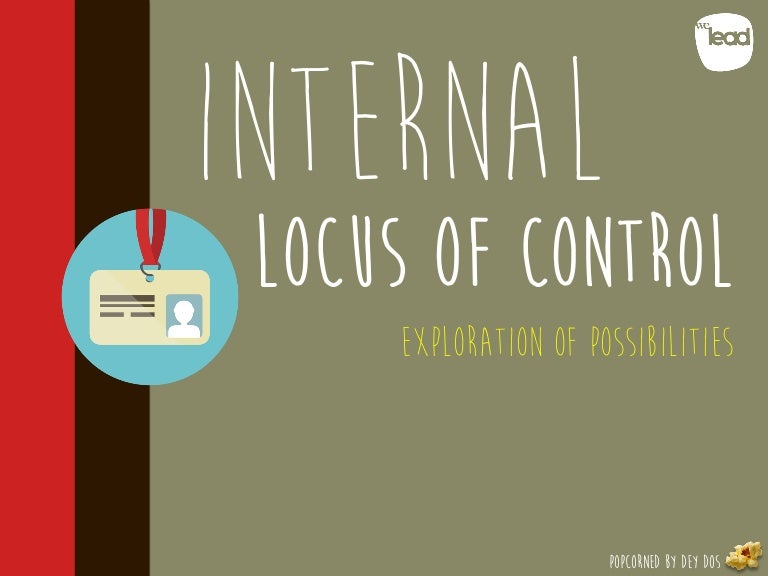

They believe that things such as fate and circumstance are the factors that are more likely to determine success rather than the strength and the quality of their own efforts. For example, “If it wasn’t for them, I would have been a lot higher up the corporate ladder”, “They were lucky - they were clearly in the right place at the right time”, and “It’s tough in our market, the competition is killing us”. If on the other hand, the statements or phrases someone is using are referring to external influences such as the actions of others, ‘chances’ or ‘luck’, then we can consider that these hold an ‘external’ locus of control.

Because I think that a big part of anxiety and stress is trying. This suggests that those with an internal locus of control believe that they are solely responsible for their success or failure. The Locus of Control activity is short and simple, but it can really help decrease anxiety. For example, “I know it is my responsibility”, “I have to develop myself to be able to succeed” and “We really knocked it out of the park there, well done”. Those with an internal locus of control tend to use a first person narrative. When trying to establish other people’s locus of control, we tend to recognise the two types through the words they use and do not use. Your position on this scale will generally stay in the same place, but has the potential to slide towards one end or the other, depending on the situation. Your locus of control is positioned on a sliding scale. Although people won’t rush to admit it, it is often the case that when someone achieves something, they will put the majority of their successes down to themselves whereas when they fail, they will attribute their failure to external factors. Whether someones locus of control is internal or external is often dependent on if the individual has succeeded or failed. On the other hand, a person with an external locus of control, attributes their success or failures to external factors, things outside of their control, such as luck or fate. If a person has an internal locus of control, they attribute their success or failures to their own efforts and abilities. The concept of locus of control is divided into two categories: internal and external. This would suggest that she has an external locus of control and sees external reasons for the failure.‘Locus of Control’ is an individuals belief system with regards to the causes of their experiences and the factors to which that person attributes success or failure. Conversely, she could say that it was because the teacher couldn’t teach and the exam was not fair. This would mean she has an internal locus of control because she sees herself as to blame for the failure. She may say that it is because she didn’t work hard enough, and should have revised more. The basic idea of locus of control is that it describes the extent an individual feels in control of what happens to them and the extent to which they, as an individual, can affect their life.Ī strong external locus of control describes when someone believes what happens to them is luck or fate and that they are not in control of their life it is all due to external forces in their environment (for example other people).Ī strong internal locus of control describes someone who believes they are in control of what happens to themĪs an example imagine ‘Danielle’ does not do well in an examination. It is a continuum which runs from a strong external locus of control at one end of the continuum to a strong internal locus of control at the other end.

Locus of Control (Rotter, 1966) is a construct that is said to be part of our personality.


 0 kommentar(er)
0 kommentar(er)
